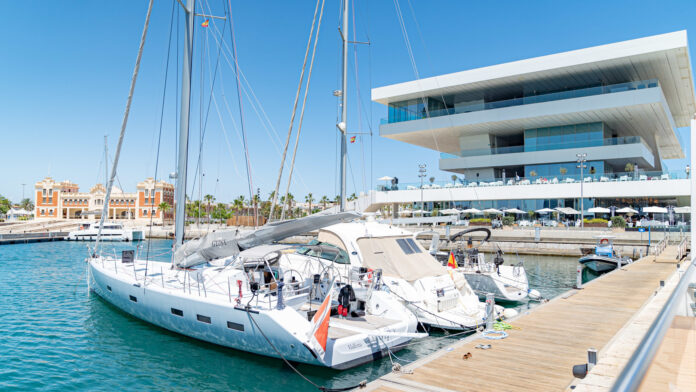Telefónica is working with La Marina de València, the maritime district in the southeastern port city of Valencia in Spain, to ‘digitise’ electricity and water supply for boats, including with various IoT, 5G, cloud computing, analytics and blockchain solutions, it has said. The firm’s enterprise division, Telefónica Tech, said the port project, which it has a hand in, will transform “traditional supply posts for boats into intelligent points”.
La Marina de València, formerly Marina Real Juan Carlos I, is considered to be one of the most modern port-marinas in the Mediterranean, with a long-time interest in developing technologies like asset tracking, smart logistics, blockchain, and driverless boats. It has been working for some years with French IoT tracking outfit Traxens, in conjunction with the local port authority and the MSC shipping company, on smartening up port operations.
The latest work with Telefónica Tech, announced as part of Telefónica’s publicity drive at MWC last week, revolves around the firm’s blockchain based ‘identity of things’ (IDoT) solution, developed by its ElevenPaths units, which provides critical devices with a unique encrypted identity. The IDoT proposition incorporates its in-house CapaciCard authentication tech and TrustOS blockchain system, plus cellular IoT connectivity and GPS positioning.
The broadband-5G reference in the press note is unclear. The new IoT solution is geared towards recreational boats. The marina is home to around 1,000 recreational moorings, which are traditionally managed manually. Newly connected supply towers will allow boat owners to link their smartphones to control and manage the “consumption of their vessel via an app”.
The supply points will also enable early detection of fresh water leaks from boats. The system, providing encrypted comms for IoT traffic, has been deployed in pilot mode. Telefónica Tech said La Marina de València is making “great strides towards becoming a port 4.0”.
A statement said: It said: The system facilitate[s] identification of both users and devices, and includes a blockchain layer to guarantee the immutability of data… It will provide greater agility and will allow consumption to be measured remotely by means of a technological platform, which at the same time will offer new services to customers, such as Internet access and information of interest on their vessels and facilities in real time.”
José Frasquet, strategic director of La Marina de València, said: “We intend to make a qualitative leap in our mooring service for boats, placing us at the forefront of ports 4.0. In addition, this digitalisation will allow us to obtain information that we didn’t have until now in order to respond to needs and problems.”
Sergio de los Santos, director of innovation at Telefónica Tech, said: “This is an innovative project in which Telefónica Tech uses its disruptive and patented technologies to help digitally transform the nautical sector. It is another example of how technology contributes to creating more efficient and sustainable systems”.

